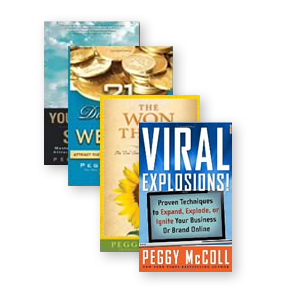THE MOST COST-EFFECTIVE WAY TO GET YOUR BOOK EDITED
Thinking of self-publishing? Should you choose the editing or editorial evaluation package from the self-publishing arm of a publisher, or from self-publishing houses?
As a former in-house acquisitions editor at HarperCollins, a current ghostwriter and developmental editor, and the coauthor of several successful books, I can help you make the right choice for yourself and your book based on your goals (and your budget). You need to know whom you are hiring (and yes, you want to hire someone who knows why I used “whom” right there!). You also want to get the most bang for your buck, and that means making sure your book’s structure, approach, voice, and concept are solid before you start line editing it. You don’t paint the walls of a house before you’ve installed the plumbing and wiring correctly!
Many editors don’t know anything about structuring and editing books, which is a skill of its own. Also, those of us who are developmental editors do not work on every type of book there is. I am well read in many areas, but in some, I admit, I know next-to-nothing! I do turn down and pass along projects I know for certain I’m not the right editor for because I don’t have enough background in working on that type of book. My clients benefit from being able to work with someone who keeps up on what’s going on in the publishing world, the book marketing world, and the worlds of wellness, motivational speaking and writing, business, health, and more.

ADVICE FOR NONFICTION AUTHORS
Here’s what I recommend for authors who want to self-publish nonfiction: Work out your outline and the beginning of the book, looking to other successful books as your guide, and then call in a developmental editor who can evaluate the material and advise you BEFORE you get off track. Write a clear description of each chapter whether or not you do a whole book proposal before contacting an editor. Don’t make the editor guess at what’s in each chapter based on the chapter titles. If you’re looking to sell the book to a publisher and need a book proposal, follow the standard instructions for creating one (you can use the guidance on my website, and please pay close attention to the all-important comparative books list). Then, ask a developmental editor with an acquisitions background or success in shaping proposals that sold to evaluate it. A developmental editor will alert you to writing issues you need to be aware of, and will guide you on structural changes you need to make. If you’re writing a memoir, you will want to be sure you know what the purpose of the memoir is. Memoirs by non-famous people have to have strong themes and titles to capture the attention of readers who aren’t friends and family members.
When you’ve gotten the manuscript into the best possible shape, hire a copyeditor/light line editor to clean it up. He or she should simultaneously create a style sheet for a proofreader to work from (a style sheet lists all the proper nouns and the grammar and punctuation rules you decided upon, such as whether or not to capitalize the first word in a full sentence that follows a colon). Hire a proofreader and ask a friend or fellow author to be another set of eyes.
ADVICE FOR FICTION WRITERS
If you want someone to evaluate your novel (or your completed memoir or other nonfiction manuscript), recognize that it will take hours just to read it, much less to read it, make notes, and correct those notes afterward. How often have I thought, “Oh, I see—now I understand what she was talking about back in chapter 2. Let me go back and change that note.”! If you want to get an evaluation and save money, create an expanded chapter outline and a plot description. Otherwise, the editor has to skim and skim to get the big picture. I was trained to do this as an in-house editor and had lots of practice reading for literary agents, book clubs, and publishers, and I regularly met with other editors doing the same sort of work to compare notes. We became masters of skimming and evaluating. But even masters need time to go through a manuscript whose entire cover letter with plot description is three sentences long! Make it easier for an editor to evaluate your book by creating the one-page synopsis at the very least. And if you can also write up a list of chapters with short descriptions, that’s even better. It will help the editor and it will give you a big picture view of your book in the process. Maybe in preparing the chapter outline, you’ll spot sections that need to be edited down, for instance.
If you decide that you really must write the whole book and “get it on paper,” so to speak, before getting direction from a developmental editor, don’t let me stop you. Just know that if you go that route, you are likely to have to do a lot of cutting and restructuring, and you may end up spending a lot more money paying an editor because you’re presenting that person with a manuscript and no “cheat sheet” with plot description or chapter summaries. Don’t be married to what you wrote.
I hope this helps! I really don’t want any of you feeling you must approach the book writing process a certain way, but I also don’t want you shocked by how much money and time it takes to shape your very raw manuscript.
Good luck on your writing and editing!

Nancy Peske is a ghostwriter, developmental editor, and book publishing consultant who has done editorial work on books including bestsellers and award-winners for over 30 years.